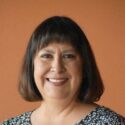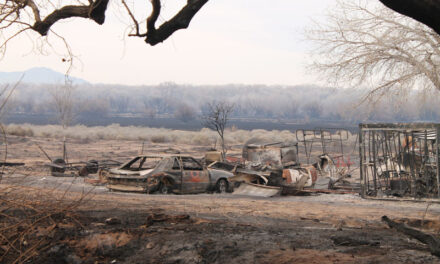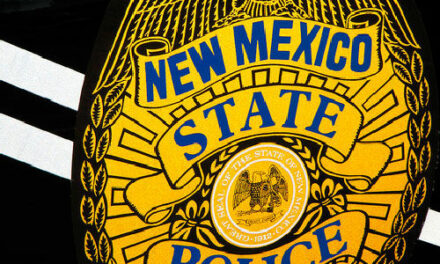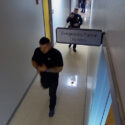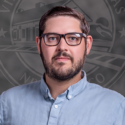Surviving cancer is a feat accomplished by more men and women every day.
In an effort to show that the disease can be conquered, a photo quilt has been made, exhibiting the faces of those who have been fortunate enough to call themselves survivors. The quilt, called “La Colcha: Cancer Survivorship with Faith, Hope and Dignity,” is a tool an Albuquerque support group is using to raise awareness about cancer in the community.
Cominando Juntos Support for Hispanic Cancer Survivors’ goal is to provide support, advocacy, education and awareness about cancer to New Mexico Hispanics. With La Colcha, the group hopes the faces of survivors will symbolize the healing process and the hopefulness of cancer survivorship.
“The photos in La Colcha tell the life stories of Hispanic cancer survivors who have had many different types of cancers,” said Elba Saavedra of Cominando Juntos. “The quilt also reflects our people of all ages — men, women, children and families.”
Two of the photos on the quilt are of women who live in Valencia County who have struggled with and survived cancer. Filomena Baca of Belen and Martha Otero of Los Lunas are only two of the faces of hope that shape the inspirational quilt.
Filomena Baca was first diagnosed with breast cancer in April 1996 when doctors found a malignant lump in her left breast. Her bout with the disease was duplicated when, four years later, to the day of her first diagnosis, doctors found she had cancer in her right breast.
Martha Otero was living in Knoxville, Tenn., when she learned she had cancer. Otero was diagnosed with breast cancer in January 1990, when she was only 34 years old. Like Baca, Otero’s fight wasn’t over with her first diagnosis. She too faced cancer a second time.
“I found out I had cancer after I came back to Los Lunas for a visit during Christmas,” Otero said. “I took my daughter in to see Dr. Joseph Aragon, a good friend of ours.
“I had been feeling bad for about a year, and I had found a lump in my breast, but my doctor in Tennessee said it was just a swollen lymph node,” Otero said. “When I asked Dr. Aragon to look at it, he told me that I needed to go back home and have it checked again.”
Otero went back to Tennessee where her doctors finally told her she was in the late stages of breast cancer. Although she was angry that it took so long to find out she had cancer, Otero was determined to survive.
Baca also had a strong determination to overcome the disease. She decided to get a mammogram after her younger sister was diagnosed with breast cancer.
“I thought I’d better get a mammogram, but, in the meantime, I was diagnosed with diabetes, so I delayed it a couple of months,” Baca said. “Three days before I was to get the mammogram, I was taking a shower and I felt a lump.”
Baca’s doctors confirmed she had a lump in her left breast and ordered a biopsy. A day after the biopsy, Baca and her husband, Ruperto, left on a vacation to Mexico. She had made up her mind that she was going to deal with the results when she came home.
“The day after I got back, I went to my doctor to find out the results,” Baca said. “I went in, but my husband stayed in the car. He chickened out.”
As soon as she was told she had breast cancer, Baca firmly told the doctor she didn’t want a lumpectomy, she wanted it all out. She was adamant that she was going to have a mastectomy. Her surgery was scheduled for a few weeks later.
Because Otero’s tumor was quite large, doctors put the mother of a 2-year-old little girl on chemotherapy for four months before she had a mastectomy on her left breast. Otero’s treatment didn’t end there.
Since she was in stage 3 of the disease, she also had to go through 28 rounds of radiation. Although the cancer hadn’t spread, Otero had to go through another six months of chemo-therapy after the radiation treatments.
“When I found out, all I did was pray and cry,” Otero said. “But, with my strong faith in God, I knew I was going to survive. I was at a point where life was good. I was a social worker, a mother and I had a family and, all of a sudden, this happened.”
Baca’s faith in God also got her through the frightening images that the cancer brought into her life. She said she wasn’t scared until the hospital called asking questions about her stay.
“They asked me if I had a will,” Baca remembered. “All of a sudden, it hit me that I could die. It hit me like a thunderbolt. My spirits went way down and, after I got off the phone, I was doing dishes.
“I was feeling really depressed, and I was praying to God to help me. All of a sudden, it felt like someone had lifted something off my shoulders, and I just started to sing. After that, I wasn’t scared anymore.”
Both Baca and Otero survived their first bout with cancer, but they soon realized that their battles weren’t over. The two women found out cancer had once again invaded their bodies.
A year after Otero was first diagnosed with breast cancer, her doctors told her that, even though she had a mastectomy, they’d found cancer in her breast wall. This time, the cancer was at a stage-four level and she was told she needed a bone-marrow transplant.
“Again, my faith got me through,” Otero said. “It was a very difficult procedure, and I was in isolation for six weeks. I never felt angry because I had a lot of support from my family and friends. It was the prayers that kept me going.”
After the bone-marrow transplant, Otero had to stay home for a year. In that time, she decided it was time for her to give back to the community and try to help other people with cancer.
“I wanted people to know that people can be this young and still get cancer,” she said. “We hear the word cancer and, immediately, people get scared.”
Baca learned the cancer recurred four years after her initial diagnosis. She had been to the doctor for a regular checkup when the mammogram revealed 10 tiny spots — this time on her right breast. This time, the cancer was more invasive, and there was no question that she needed another mastectomy.
“I thought things went well the first time and whatever happens, happens,” Baca said. “I have a lot of faith in God, and I told Him that if it’s going to be bad for me, then please help me. I told Him ‘if you want to heal me, then it’s wonderful. If not, just help me deal with it.'”
Both Otero and Baca have learned a lot about themselves and others from their experience with cancer. Not only was their faith in God strengthened, they realized they had overcome something that took courage and determination.
“I think I learned that I am stronger than I thought I was,” Otero said. “It does take a lot of work, strength and faith. There were days that it took all of the energy that I had just to get up from bed. We can have all the strength in the world, but I just needed to know that I could call on it.”
“I’ve learned that, if I can deal the something like that, I can deal with anything,” Baca said. “I’ve learned that there’s a lot of strength if you have the faith in God.”
The photo quilt featuring portraits of 27 Hispanic cancer survivors will visit the county from Aug. 12 to 21.
The quilt will be up for public viewing at First Choice Community Health Care Clinic located at 120 South Ninth Street in Belen.
Anyone interested in participating in Caminando Juntos, Support for Hispanic Cancer Survivors, may contact Elba Saavedra at P.O. Box 40725, Albuquerque 87196, e-mail to [email protected] or call 243-5610
Clara Garcia is the editor and publisher of the Valencia County News-Bulletin.
She is a native of the city of Belen, beginning her journalism career at the News-Bulletin in 1998 as the crime and courts reporter. During her time at the paper, Clara has won numerous awards for her writing, photography and typography and design both from the National Newspaper Association and the New Mexico Press Association.
